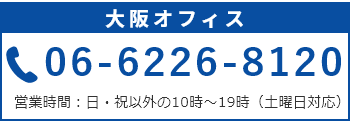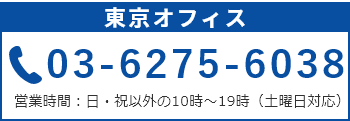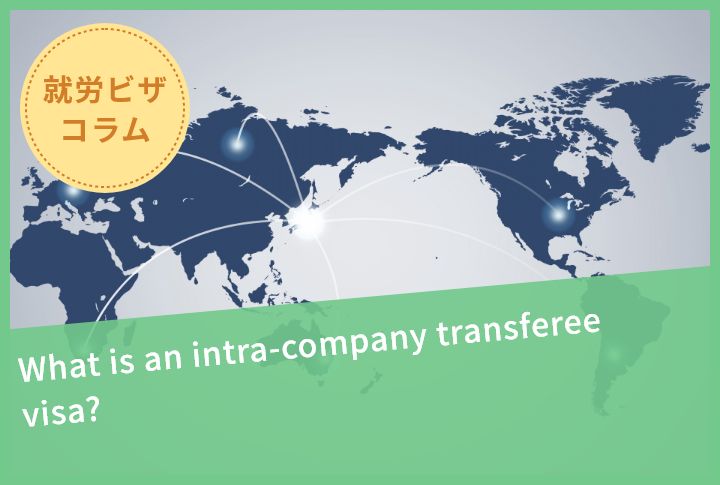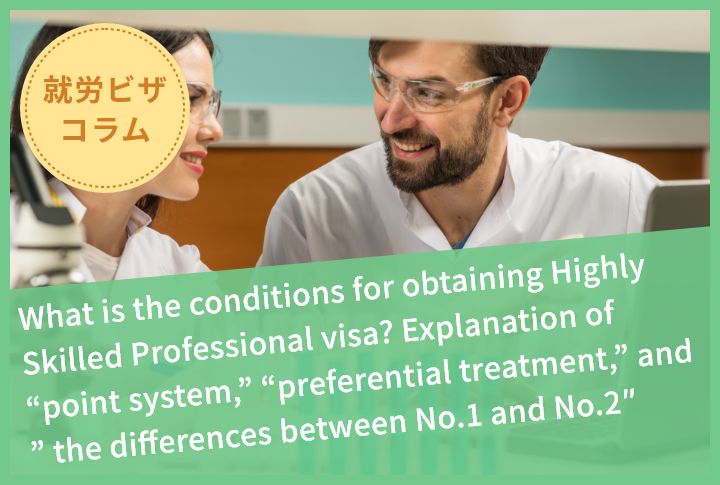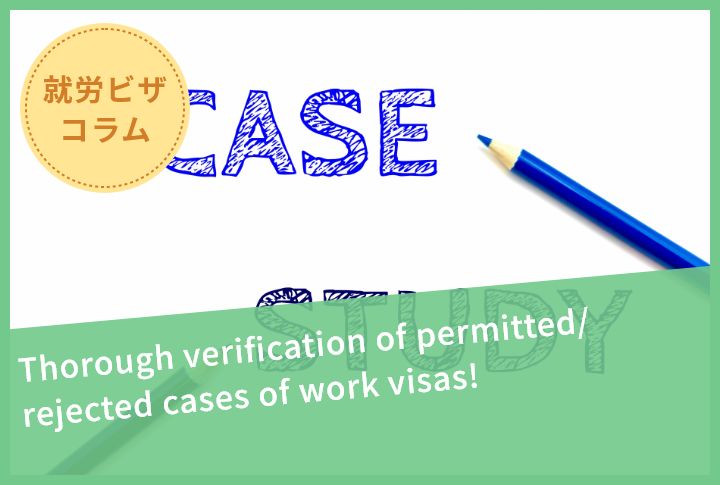The relationship between fake residence cards and the crime of promoting illegal work
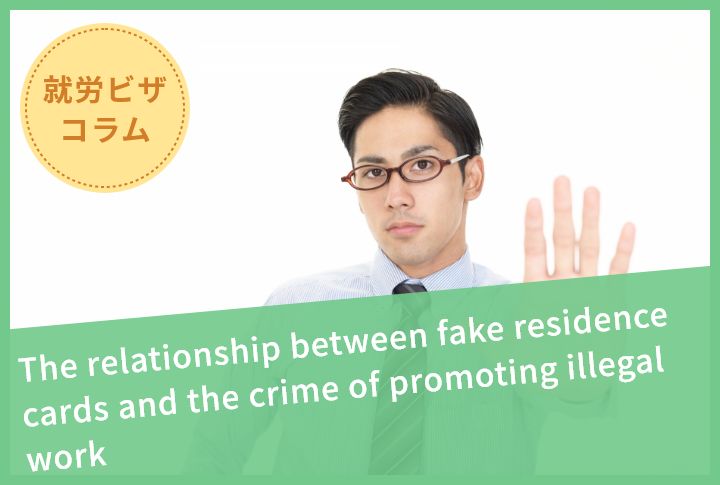
Fake residence cards have become a social issue.
In response to this situation, the Immigration Services Agency of the Ministry of Justice is also calling attention.
In this article, for companies employing foreigners, we would like to describe the relationship between fake residence cards and the crime of promoting illegal work.
Many people may think, “I have nothing to do with fake residence cards.”
However, the cases relating to fake residence cards have been occurring surprisingly near our everyday life.
A small oversight can lead to losing the brand image of companies.
In the worst case, companies will be fined, deprived of licenses, and lose their credit from financial institutions, etc.
Therefore, it is no exaggeration to say that fake residence cards and the crime of promoting illegal work need to be understood as the most important matter for companies that employ foreigners.
This article includes very important contents.
So, please take a look!
Index
1. Cases of exposure of fake residence cards
Along with the revision of the Immigration Act on July 9, 2012, the Alien Registration Act was abolished and the current residence management system started.
According to the materials published at that time, it was an epoch-making system: A hologram was printed on residence cards as a measure to prevent counterfeiting, and the validity of residence cards could be confirmed by using the system of inquiry about validity of numbers of residence cards, etc. provided by the Immigration Services Agency.
Furthermore, it was said to be possible to confirm whether residence cards were genuine by reading the IC chip information embedded in each card, so we expected that there would be no more issues about fake residence cards.
However, as if to disappoint such expectations, the exposure of fake residence cards has been reported one after another.
The number of fake residence card cases has increased year by year, and the number in 2019 was the highest ever.
As the recent characteristic of such cases, the crime is more systematic and sophisticated.
・Partial excerpt from Kobe Shimbun dated September 29, 2020
“Commercialization of counterfeiting and smuggling of residence cards. ‘I’ve made 200 cards a day.’ More than 4,000 cases of illegal stay were exposed.”According to investigators, a woman arrested on a charge of counterfeiting cards said, “I’ve made 200 cards a day. I was too busy to sleep,” which shows high demand. In another case of the crime of promoting illegal work handled by the Hyogo Prefectural Police in July, a copy of a counterfeit card was found in a company in Kobe City that was suspected of illegally hiring an illegal foreign resident.
・Partial excerpt from Saga Shimbun dated September 9, 2020
“Re-arresting a Vietnamese man on a charge of providing a fake residence card on 8th. Torisu police station, etc.”The alleged crime for re-arrest is providing a Vietnamese man in his twenties with a fake residence card with his name and face photo for the purpose of exercising at the west side rotary of JR Hakozaki Station on November 26, last year.
According to the police, the man was arrested on July 29 this year in the act of violating the said law (illegal stay) and indicted on a charge of the same crime. He met the Vietnamese man through social media and handed the card for a fee. Police are investigating how the card was manufactured.
・Partial excerpt from Asahi Shimbun Digital dated September 6, 2020
“Hyogo) What is the background of increase in demand for counterfeit residence card?”In April, the investigation headquarters searched a room in an apartment in Kawaguchi City, Saitama, which was believed to be a manufacturing base. Printers and 2,000 material cards, 12,000 holograms, etc. were seized. It is said that there was a personal computer containing data on about 1,800 customers.
According to investigators, counterfeit residence cards were sold to Vietnamese people for 10,000 to 20,000 yen each by taking orders through social media. The 2 persons also forged driver’s licenses, health insurance cards, pension books, etc., and are believed to have received a remuneration of 4 million yen during about half a year until April.
2. Why do fake residence cards circulate!? Please be careful if hiring foreigners at this time!
Companies that employ foreigners need to know the world behind the scene in relation to fake residence cards.
We wish the companies to know the world behind the scene to prevent the employment of foreigners who have fake residence cards.
By the way, why do some foreigners try to get a fake residence card?
It is because it’s difficult for foreigners without a proper status of residence to work in Japan.
It may be able to be evaluated that the “confirmation of residence cards when hiring foreigners,” which the Immigration Service Agency has long instructed, has penetrated into Japanese companies.
Foreigners without a proper status of residence uses fake residence cards as a convenient way to get past the employment system of Japanese companies that carry out legitimate procedures.
Such use of fake residence cards shakes Japan’s residence management system and cannot be allowed.
Then, are companies always at risk of getting deceived by fake residence cards when hiring foreigners?
As a matter of fact, when hiring foreigners, it is necessary to be aware of the existence of problems concerning fake residence cards.
Some of the situations where fake residence cards are actually used are as follows:
・A foreigner who already has a work visa changes his/her job and enters a new company.
・A foreigner who has a student visa or dependent visa works part time at a company.
Those cases need special attention.
What is common to these cases is that foreigners can start working without any application at an immigration office.
In other words, for foreigners without a formal status of residence, exercise of a fake residence card is easy in these cases, so companies need to be especially careful in these cases.
3. If there is no negligence, companies will not be charged with the crime of promoting illegal work!?
For information on what companies need to do when hiring foreigners, please read, “What is the crime of promoting illegal work, which is charged even when committing it without knowing it?”.
Now, what exactly should a company do to avoid being charged with the crime of promoting illegal work?
The shortest way to unravel it is to understand the crime of promoting illegal work under Article 73-2 of the Immigration Act.
Article 73-2 (1) A person falling under any of the following items is to be punished with imprisonment for not more than 3 years or a fine not exceeding 3 million yen, or is to be subject to the cumulative imposition of imprisonment and a fine:
(i) a person who has a Foreign National engage in illegal work in connection with business activities; or
(ii) a person who places a Foreign National under control of that person for the purpose of having the Foreign National engage in illegal work;
(iii) a person who arranges on a regular basis for a Foreign National to engage in illegal work or who makes arrangements for the act set forth in the preceding item.
(2) A person who performs an act falling under one of the items of the preceding paragraph is not be exempt from punishment pursuant to the provisions of the same Article on the grounds of lacking knowledge of it coming under any of the following items; provided however, that this does not apply if there is no negligence:
To put it simply, the crime of promoting illegal work is a crime that is charged when a company causes or assists a foreigner to engage in illegal work activities.
The illegal work activity mentioned here includes not only cases where a company hires an overstayer, but also cases where a company hires a foreigner who has a fake residence card and pretends to be a legitimate resident.
In other words, when a company is deceived by a foreigner who has a fake residence card and ends up hiring the foreigner, such company will be charged with the crime of promoting illegal work.
Then, is there any case where companies are exempted from such liability?
The key point here is the understanding of the proviso of Article 73-2, paragraph 2 as cited above.
Article 73-2, paragraph 2 states that companies are not exempted from liabilities even if they didn’t know that it was illegal work activities, but if there is no negligence on the part of the companies as to how illegal work activities came to be committed, such companies are not liable.
Accordingly, if a company hires a foreigner using a fake residence card, the company cannot be excused by saying they didn’t know, but the company will be exempted from liability if there is no negligence regarding how illegal work activities came to be committed.
“If there is no negligence” in this article means that when all means that should be taken have been taken when hiring foreigners.
In other words, if there is an oversight on the part of companies, it is unavoidable to be found that there was negligence.
It is very strict for companies that employ foreigners.
4. What companies should do to avoid being charged with the crime of promoting illegal work?
Regarding how illegal work activities came to be committed, as mentioned in the previous section, companies need to conduct following 4 items in order to be found that there was no negligence.
As mentioned above, please note that if any of the items below is omitted, it may be found that there was negligence on the part of the company.
【What companies should do to avoid being charged with the crime of promoting illegal work?】
(1) Confirm the original residence card;
(2) Save copies of both sides of the residence card;
(3) Implement inquiry about validity of numbers of residence cards, etc.; and
(4) Save the webpage where inquiry about validity of numbers of residence cards, etc. was implemented.
(Reference site) The Immigration Services Agency, Inquiry about validity of numbers of residence cards, etc.
https://lapse-immi.moj.go.jp/ZEC/appl/e0/ZEC2/pages/FZECST031.aspx
This section is very important.
Again, if any of the items above is omitted, it may be found that there was negligence on the part of the company.
We, therefore, recommend companies to include (1) to (4) in the procedure for employing foreigners.
Recently, various companies have released products called “counterfeit residence card checker,” so introduction of such checker would be one way for companies that employ foreigners.
Please note that, even if companies use this checker, it is still necessary to carry out all the measures (1) to (4) above.
5. The method of finding fake residence cards as announced by the Immigration Services Agency
From here, we will show you the method of finding fake residence cards as announced by the Immigration Services Agency.
(1) Please look at “MOJ” on the left side of the face photo of the residence card.
Tilt the residence card up and down, and if the letters “MOJ” change from green to pink, it is a genuine residence card.
(2) Please look at the vertical pattern on the left end of the residence card.
Tilt the residence card up and down, and if the vertical pattern changes from green to pink, it is a genuine residence card.
(3) Please look at the silver hologram under the face photo of the residence card.
Change the viewing angle by 90 degrees, and if the characters on the hologram are inverted from white to black, it is a genuine residence card.
(4) Please try to put a strong light directly to the surface of the residence card in a dark place. A cell phone light is enough. If you see the watermark of “MOJMOJ…” by putting light to the surface of the residence card, it is a genuine residence card.
(Reference) Immigration Services Agency, How to check residence cards and special permanent resident certificates
http://www.immi-moj.go.jp/newimmiact_1/pdf/zairyu_syomei_mikata.pdf
6. Summary
In this article, we have described the relationship between fake residence cards and the crime of promoting illegal work.
It is understandable if you emotionally don’t understand why companies are held responsible although they have been deceived by fake residence cards.
However, this is decided by law.
It is necessary for companies to understand it as a necessary procedure when hiring foreigners.
In our opinion, the current crime of promoting illegal work is very strict for companies that employ foreigners as the burden of proof regarding negligence is considered to be on the company’s side.
In addition, there is a growing sense of caution that the scope of the crime of promoting illegal work may be expanded depending on the practical operation since there is no established judicial precedent regarding such scope.
On the other hand, foreign human resources are indispensable in Japan, where the working-age population is steadily declining.
Therefore, it is expected that the number of companies that employ foreigners will increase in the future, and the construction of the employment management system for foreign human resources described in this article will become even more important from the perspective of corporate compliance.
It is necessary for companies that employ foreigners to understand the above and to build a safe and secure employment management system so that they will not make errors in employment of foreigners.
We hope that this article will be useful to companies that employ foreigners.



